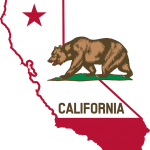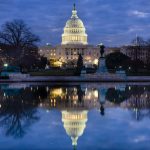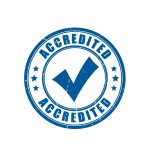Related Websites
 California
California
California Department of Health Care Services
California Society of Addiction Medicine (CSAM)
National Associations/Societies
American Association for the Treatment of Opioid Dependence (AATOD) their goal is to enhance the quality of patient care in addiction treatment programs by promoting the growth and development of comprehensive medication-assisted therapy services throughout the world.
American Society of Addiction Medicine (ASAM) increases access to and improve the quality of addiction treatment and to establish addiction medicine as a primary medical specialty.
College on Problems of Drug Dependence (CPDD) is an independent, scientific society in the drug dependence field offering updates on recent research advances that have implications for public health agendas.
National Council on Alcoholism and Drug Dependence (NCADD) is America’s oldest national advocacy health organization dealing exclusively with alcoholism and drug dependence
National Association of State Alcohol and Drug Abuse Directors (NASADAD) is a private, not-for-profit educational, scientific, and organization that serves State Drug Agency Directors, State Alcoholism Agency Directors, and State Opioid Treatment Authorities.
Society for Prevention Research (SPR) is an organization dedicated to advancing scientific investigation on the etiology and prevention of social, physical and mental health, and academic problems and on the translation of that information to promote health and well being.
The Association for Addiction Professionals (NAADAC) is the largest membership organization serving addiction counselors, educators and other addiction-focused health care professionals who specialize in addiction prevention, treatment and education.
 Federal Government
Federal Government
Center for Substance Abuse Prevention (CSAP), as part of the Substance Abuse Mental Health Services Administration (SAMHSA), works with States and communities to develop comprehensive prevention systems that create healthy communities.
Center for Substance Abuse Treatments (CSAT), as part of the Substance Abuse Mental Health Services Administration (SAMHSA), works with States and community-based groups to improve and expand existing substance abuse treatment services under the Substance Abuse Prevention and Treatment Block Grant Program.
CSAT Knowledge Application Programs (KAP) assists treatment providers in adopting and implementing the information in CSAT’s published materials. KAP develops tools that program directors, clinical supervisors, and other staff members can use to actively promote the adoption of new treatment approaches, taking “science” to “service.
Centers for Disease Control & Prevention (CDC), promotes health and quality of life by preventing and controlling disease, injury, and disability.
Drug Enforcement Administration (DEA) enforces the controlled substances laws and regulations of the U.S.
Food & Drug Administration (FDA) is an agency of the U.S. Department of Health and Human Services responsible for protecting and promoting public health through the regulation and supervision of prescription and over-the-counter pharmaceutical drugs (medications).
National Center on Substance Abuse & Child Welfare (NCSACW) improves systems and practice for families with substance use disorders who are involved in the child welfare and family judicial systems by assisting local, State and tribal agencies.
National Institute on Alcohol Abuse and Addiction (NIAAA) provides leadership in the national effort to reduce alcohol-related problems.
National Institute on Drug Abuse (NIDA) supports research to prevent and treat drug abuse and addiction.
National Institutes of Health (NIH) serves as a gateway to many other health and medical organizations and agencies.
National Recovery Month is an annual observance that takes place during the month of September. The Recovery Month observance highlights the societal benefits of substance abuse treatment, lauds the contributions of treatment providers, and promotes the message that recovery from substance abuse in all its forms is possible.
Office of National Drug Control Policy (ONDCP) establishes policies, priorities, and objectives for the U.S. drug control program.
The Substance Abuse & Mental Health Services Administration (SAMHSA) mission is to reduce the impact of substance abuse and mental illness on America’s communities.
U.S. Department of Health and Human Services (HHS) provides information and resources on substance use disorders and health insurance/Medicaid issues.
U.S. Department of Justice (DOJ)
U.S. Department of Veterans Affairs
 Research and Reference
Research and Reference
Alcohol Medical Scholars (AMSP) promotes education in medical schools regarding the identification and care of people with alcohol use disorders and other substance-related problems. The site provides informative PowerPoint presentations on a variety of substance abuse topics.
Brown University Center for Alcohol and Addiction Studies (CAAS) promote as the identification, prevention, and effective treatment of alcohol and other drug use problems through research, education, training, and policy advocacy.
Center for Education and Drug Abuse Research (CEDAR) at University of Pittsburgh focuses on the origins and developmental pathways to substance use disorder (SUD).
Institute for Behavioral Research (IBR) at TCU focuses on the origins and developmental pathways to substance use disorder (SUD).
The Pacific Southwest Addiction Technology Transfer Center (ATTC Pacific Southwest) is designed to enhance knowledge and expertise in addiction treatment and recovery by disseminating clinical and research information.
Treatment Research Institute (TRI) conducts science research in addiction and substance use to evaluate what works and why.
Patient Advocacy and Recovery
Faces & Voices of Recovery is a national organization that supports local, state, regional and national recovery advocacy.
Legal Action Center (LAC) is a non-profit law and policy organization in the U.S. whose mission is to fight discrimination against people with histories of addiction, HIV/AIDS, or criminal records, and to advocate for sound public policies in these areas.
Life Ring is a network of support groups for alcohol and other drug abusers.
Narcotics Anonymous (NA) is an international, community-based association of recovering drug addicts with more than 58,300 weekly meetings in over 131 countries worldwide.
National Alliance for Medication Assisted Recovery (NAMA Recovery) is an organization composed of medication-assisted treatment patients and health care professionals that are supporters of quality opioid agonist treatment.
The Partnership at Drugfree.org provides information for parents, helping them prevent, intervene in or find treatment for drug and alcohol use by their children.
SMART Recovery® participants learn tools for addiction recovery based on the latest scientific research and participate in a world-wide community which includes free, self-empowering, secular and science-based, mutual-help support groups.
 Accreditation Organizations
Accreditation Organizations
Commission on Accreditation of Rehabilitation Facilities (CARF) is an independent, nonprofit organization which provides accreditation services worldwide at the request of health and human service providers.
The Joint Commission is an independent, not-for-profit organization, which accredits and certifies more than 19,000 health care organizations and programs in the U.S.
All links accessed December 18, 2020.

